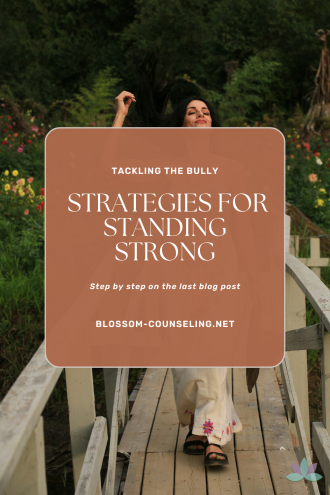
Bullying – it’s a word that conjures up images of schoolyard taunts and social media trolls. But let’s face it, bullies don’t just disappear after high school. They lurk in office corridors, at family gatherings, and sometimes, unfortunately, in our circle of friends. Dealing with a bully can feel like navigating a minefield, but with the right strategies, you can stand your ground, protect your mental space, and maybe even transform a negative situation into a positive one.
Understand the Bully’s Playbook
Bullies come in all shapes and sizes, but their tactics? Surprisingly predictable. They thrive on control and intimidation, often targeting perceived weaknesses. Understanding this can be empowering. It’s not about you; it’s about their need to feel powerful.
Establish Boundaries
Imagine a bubble around you – this is your personal space, both physically and emotionally. When a bully tries to pop this bubble, it’s essential to reinforce it. Firmly, but calmly, let them know their behavior is unacceptable. Practice phrases like, “I won’t tolerate being spoken to like that.” Boundaries are your psychological armor.
Document Everything
In the digital age, the pen is mightier than ever. Keep a record of bullying incidents – emails, messages, dates, times, and witnesses. Documentation is more than just a record; it’s a tool of empowerment, giving you clarity and control over the situation.
Seek Support
Bullying can isolate and overwhelm you, but remember, you’re not alone. Reach out to friends, family, or colleagues who understand and support you. Sometimes, just talking about it can lighten the load and provide new perspectives.
Respond, Don’t React
Bullies feed off emotional reactions. It’s like a game to them, and every reaction is a point scored. So, instead of reacting, respond. Take a deep breath, count to ten, do whatever it takes to respond in a controlled, composed manner. This isn’t about suppressing emotions; it’s about choosing how to express them.
Empathize, But Don’t Excuse
This might sound counterintuitive, but sometimes understanding a bully’s background can be insightful. Often, their behavior stems from their insecurities or past traumas. Empathizing with a bully doesn’t excuse their actions, but it can diffuse the anger you feel and give you a different approach to the problem.
Look After Yourself
Dealing with a bully can be mentally and emotionally draining. Make self-care a priority. Whether it’s yoga, a favorite hobby, or just quiet time with a book, do things that replenish your mental reserves.
Know When to Seek Professional Help
Sometimes, the situation can escalate beyond what we can handle alone. Don’t hesitate to seek professional help. Whether it’s HR in your workplace, a counselor, or a mental health professional, getting expert advice can be a game-changer.
Reflect and Grow
Every challenge in life, including dealing with bullies, is an opportunity for personal growth. Reflect on what you’ve learned about yourself, your strengths, and how you can handle similar situations in the future. You’re not just surviving the experience; you’re growing from it.
Bullying is a complex issue, and handling it requires patience, strength, and often, a new perspective. Remember, you have the right to a bully-free environment, and standing up to bullying doesn’t just help you – it can create a ripple effect, empowering others to do the same. Let’s build a world where respect and kindness overshadow intimidation and fear.
Our team of compassionate therapists is here to help you find the support you need. We believe in a holistic approach, treating your mind, body, and spirit. With a blend of traditional and alternative therapies, we tailor your experience to meet your unique needs. At Blossom, we create a non-judgmental space where you can be your authentic self. Our goal is to empower you, amplify your strengths, and help you create lasting change. Together, we’ll navigate life’s challenges and help you bloom, grow, blossom! You deserve to become the best version of you.




